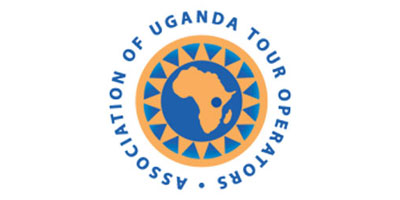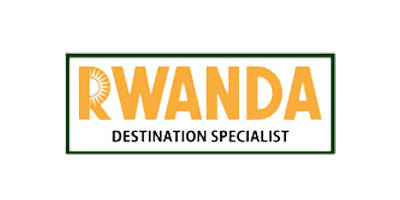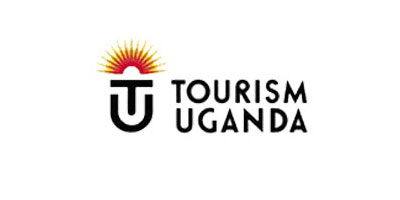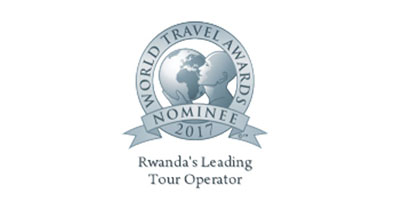RWANDA GENERAL INFORMATION
General country information
Overview
General country information
Is Rwanda safe to visit? What time is it in Rwanda? Do I need a visa for Rwanda? When planning a holiday to Rwanda, many important travel questions crop up. Below we’ve tried to answer them as best as we can for our travellers.
Know before you go
As you plan your trip, and before you travel, we recommend that you check the latest Foreign Office advice on the places that you’re going to – regardless of where you are travelling to, or how you are travelling. See FCO’s Rwanda advice here, or its info on other countries here.
We urge you to do this, as we recommend that all our travellers keep themselves up to date with the current foreign office advice on their destination countries.
Rwanda’s history
In 1994, Rwanda’s civil war dominated the world’s headlines. This became known as ‘Rwanda’s genocide’; hundreds of thousands of people where killed. It is still what most people will think about when they hear the word ‘Rwanda’.
Now, over 20 years later, the country is once again peaceful. Rwanda’s democratic government promotes harmony, and the Rwandese are enjoying a good life again. Many are eager to tell of their past, to let the world know what happened – and to protect their country against it ever happening again.
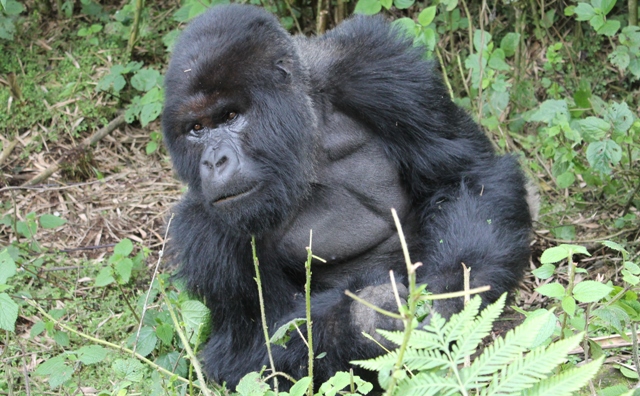
Time in Rwanda
There is no time difference between winter and summer months in Rwanda; it’s always two hours ahead of Greenwich Mean Time (GMT+2).
Currency in Rwanda
Rwanda’s currency is the Rwandan franc (RWF). Currently (Feb 19), £1 = Rwf 1,1415, and US$1 = Rwf 875; you can check the latest exchange rates with www.oanda.com.
Rwanda’s International Dialling Code
Rwanda’s International Dialling Code is +250. Calling from Rwanda, you need to dial 0044 for the UK, or 001 for the United States, followed by an area code and local number. Calls can be made with Rwandatel S.A., Rwanda’s largest company for telecommunications.
Food in Rwanda
The food in Rwanda varies from mediocre to very good. Fresh fruit and the Belgian-inspired cuisine are usually good; otherwise, whilst hygiene standards are generally high, results can be variable.
The diet for most local Rwandese people consists mainly of sweet potatoes, peas, corn, beans, millet and fresh fruit, including avocados, mangos and papayas. Umutsima (cassava and corn), isombe (cassava leaves with eggplant and spinach) and mizuzu (fried plantains) are some of Rwanda’s traditional dishes. Drinks include local beer and ikigage, a locally brewed beer made from sorghum.
Travelling in Rwanda
With your own 4WD vehicle and driver, travelling in Rwanda is fairly easy. Although major arterial routes are tarred, some roads in the more rural areas are not and can be in poor condition.
Health in Rwanda
There are medical facilities of Western standards in Kigali; elsewhere facilities are rudimentary. It is generally wise to you are be up-to-date on vaccinations for typhoid, tetanus, polio and diphtheria. Many travellers also have the Havrix vaccine to guard against infection by hepatitis A and a yellow fever certificate is usually required for entry into Rwanda if you are passing through a yellow fever endemic country. Malaria is widespread throughout lowland Rwanda, so malaria precautions are generally essential.
That said, it’s vital that you always check the latest recommendations with your own doctor or travel clinic before you travel. (The Scottish NHS site can also be a useful travel resource for medical information about Rwanda.)
AIDS is common in Rwanda; HIV infection rates are high. Generally, this isn’t an issue for visitors, though they should be aware of the current situation, and take the same wise precautions to avoid infection as in most other countries. We understand that blood supplies used by the private hospitals here have been carefully screened for years.
Language in Rwanda
The main language spoken in Rwanda is Kinyarwanda (a Bantu language, also known as ‘Rwanda’ or ‘Ruanda’). French is widespread and English is also spoken by many people who are in contact with visitors.
Visas for Rwanda
We understand that travellers of all nationalities need to purchase a visa when travelling to Rwanda; currently (Feb 2019), this costs US $30 and can be obtained on arrival. However, always check with your local Rwandan Embassy for the latest regulations; UK nationals will find details on the Embassy of the Republic of Rwanda in London website.
More info about Rwanda
Tipping explained
We often get asked ’who, when and how much we should tip whilst in Rwanda?’ by our travellers. The information provided below should help with the issues involved with giving gratuities to the various guides, rangers and staff you’ll meet during your trip.
Rwanda’s economy: the effects of tipping.
Any tips given are naturally at your own discretion, and are usually dependent on the quality of the services given. We believe that exemplary service deserves to be appreciated, but at the same time, we’d like our travellers to be aware of the potential impacts that tipping can have on the local communities.
Gratuities received can of course make a substantial difference to the salary of the staff involved, including trackers, guides and porters, as well as waiting staff and general help in the larger hotels. There is a fine balance though, between tipping too much and tipping the right amount. While this may not seem that it has a noticeable impact, but it can really affect the balance of the local economy.
For example, if we look at the jobs of the rangers or guides within the parks – these are obviously important roles, requiring extensive training and sufficient knowledge of the area. You’ll generally find that such posts require a higher level of education, and since it’s important that the role is carried out by a competent team member, you’ll find that it will be occupied by someone who has worked within the national parks for quite a few years. You’ll also find that remuneration for these jobs are reasonable, though not at the higher end of the scale.
On the other side of the scale, you have more general staff – either porters on your treks, or assistant staff in the camps. Whilst their jobs of carrying luggage or helping out are still important tasks, there isn’t the need for the same experience and education levels, resulting in significantly less responsibility and a reduced salary compared to those of the rangers and guides. As such, if such an employee receives much higher tips, then you could be left with a situation in which they are then making more than the rangers.
In such a case, higher than average tips can affect the balance of responsibility and remuneration. If this were to happen regularly, rangers and guides could potentially be less motivated to work as hard or take on as much responsibility. If this ends up with them leaving their jobs to take on a role that would result in them earning more, once their tips were added on, this would of course have a severe impact on the park, primates and the visitors.
Therefore, we would advise bearing in mind the importance of the work of each individual and tip accordingly.
When in Rwanda, which members of the teams do you tip?
- Tipping your guides
In Rwanda, your private driver/guide will be the main factor to a successful trip. Bearing this in mind, they are generally tipped separately. Your trekking guides also are usually tipped separately to the rest of the team.
- Tips for rangers and porters
You’ll often be accompanied on a primate trek by one or two rangers, and there will be a group of trackers out in the national park ahead of you, tracking the movements of the primate group you’re following. You’ll also have the opportunity to hire a porter for the trip. We’d advise to tip the rangers and porters separately, and tip the trackers as a group.
- Tips for the back of house team
There are many people working to make sure your trip runs smoothly, many of whom you may not even see, including kitchen, maintenance and housekeeping staff at the various lodges. Most lodges will have a general tip box that is then split equally between this team.
- Should you tip the managers?
We are sometimes asked if it’s prudent to tip the managers. Whilst they are of course important to your trip, we’d advise considering this: would you leave a tip for the manager of a restaurant you’d visited? As always, you may have exceptions to the rule, but as a general rule of thumb we usually wouldn’t recommend tipping the lodge or hotel managers. To summarise, in Rwanda we generally suggest tipping your private guide and your guides on any treks separately to the ‘back of house’ teams, be that whilst hiking or at the lodges. It would be unusual for guests to leave gratuities for the manager of the lodge.
When is the right time to tip?
We do get asked when the best time is to hand out any tips. You have a few options, ether to tip after each activity, at the end of each day, or at the end of your stay.
Firstly, you may wish to tip your private driver/guide. In this case, we’d recommend that you give the money directly to him/her as you leave. Secondly, if you want to tip staff at the hotels, we would suggest placing the tips in the staff tip box again at the end of your stay.
Finally, if you are tracking gorillas or other primates in Rwanda, it is usual to tip your national park guide, ranger and porter at the end of the trek. It’s customary also to tip a couple of dollars to any trackers, you’ll need to do this after your hour with the primates, as they will stay in the forest while you head back to the park headquarters.
What is the best way to tip?
You’ll find that the majority of hotels and lodges have a main tip box, often at reception, that is shared out amongst the staff equally. Guests have asked us if they’re able to tip using a credit card, but this is not usually practical, the majority of hotels in Rwanda are unable to process this, so we advise that you take cash for tipping.
For your trekking guides, rangers, trackers and porters, you’ll need to tip in US dollars or Rwandan francs. We’d advise bringing US dollars in small denominations for this purpose, as it’s often difficult to get small change once out in the country.
If you want to plan ahead, take a few envelopes along to prepare tips for individual guides along the way.
Is there a certain amount I ought to be tipping?’
We’re only able to advise based on our own trips out to Rwanda. Tipping is not compulsory, and whilst it’s always appreciated, the amount given depends completely on your personal experiences, opinions and satisfaction.
With that in mind, we’ve given a rough guideline below:
- Private Guide: $10 per person per day
- National Park Guide: $5 per person, per trek
- Ranger: $5 per ranger
- Trackers: $5 for the group
- Hotel / lodge staff: US $10 per person per day
If you take into consideration the points above, the Gross National Income (GNI) for Rwanda is, on average, US $5.12 per person per day (2016 data), which reflects the average income for Rwanda’s population.
To put that into perspective, in the UK the average GNI is US $116 per person, while in the United States it is around US $156 and in Germany approximately US $120 for each member of the population.
To conclude, though giving gratuities can be a complicated subject, it is a normal part of Rwanda’s culture and service industry. Do remember that more affluent travellers can impact disproportionately on the local economy, tipping the balance of social and economic factors, so keep that in mind when tipping staff and guides during your time in Rwanda.
The best time to visit Rwanda
We’re often asked ‘when is the best time to go to Rwanda?’, and the answer is usually complex. It will depend on many things including your interests, where you want to visit and why you’re travelling. One person’s best time is another’s worst!
However, often a concern about the weather underlies the question of ‘the best time to go’.
So here we’ve put together a very rough guide to the climate in Rwanda. Remember that this comes from records and our experience, not from a crystal ball, and that Africa’s weather patterns are becoming increasingly unpredictable – probably due to global warming.
In the heart of Africa, fractionally south of the equator, Rwanda’s relatively high altitude provides it with a remarkably pleasant tropical highland climate, albeit also with plenty of rain. Temperatures vary considerably between locations depending on their altitude, but very little from month to month in the same place. In the capital, Kigali, the average daily temperature is about 21°C.
Rwanda’s long rainy season lasts from about March to May, when the rain is heavy and persistent. Then from June to mid-September is the long dry season; this is generally the best time to visit if you have the choice.
October to November is a shorter rainy season and it’s followed by a short dry season from December to February.
During both of Rwanda’s dry seasons, there is often light cloud cover. This helps to moderate the temperatures, but also occasionally brings light rain showers.
International flight routes to Rwanda
Most of our travellers book their flights to Rwanda with us. If you would rather arrange your own flights, or plan to book with air-miles, then feel free to do so. If you arrange your flights to Rwanda, we will gladly make the ground arrangements for you.
Starting from London
The easiest way to reach Rwanda from the UK is flying with, RwandAir who have a direct flight from London Gatwick to Kigali – though the flight does stop down in Brussels, you do not need to disembark. This flight currently flies three days per week, though the airline plans to add more routes.
Alternatively it is possible to fly from London Heathrow to Nairobi, in Kenya, and then connect through to Kigali, in Rwanda. Kenya Airways has an overnight flight to Nairobi which departs London Heathrow every evening, arriving in Nairobi typically around 06:30 in the morning. This then connects directly to an onward Kenya Airways flight to Kigali generally arriving there at about 10:30. It is also possible to fly with British Airways which arrives in Nairobi at about 21:00. We can organise for a stay at an economical airport hotel and then onwards travel the following morning to Kigali.
Alternatively, if you’re coming from a safari holiday in Namibia or Botswana, you can fly from Jo’burg to Nairobi with South African Airways, and then connect through to Kigali with Kenya Airways – after an overnight stop in Nairobi. Rwandair have direct flights from Lusaka in Zambia, and Harare in Zimbabwe, through to Kigali.
On arrival at the airport in Kigali, you’ll be met by your guide, who will stay with you for the whole duration of your trip. From Kigali, all of our lodges are reached by road transport, including those in Volcanoes National Park, on the shore of Lake Kivu, and in Nyungwe Forest
Starting from the USA
Starting from the United States of America, you have two main options for travelling to Rwanda:
1) You arrange your return flights USA -> London and London -> USA.
Expert Africa arranges for you the London -> Rwanda and Rwanda -> London flights and transfers.
We can also utilise low add-on rates for internal flights within the African continent, linked to your international flight ticket. However, make sure you have enough time to connect to your flight to Africa in London.
2) You organise your flights USA -> Rwanda and Rwanda -> USA, e.g. via London, and tell us about your flight times and carriers.
Expert Africa arranges your travels in Rwanda for you, including any road transfers.
This makes sense if you are flying direct from the USA – for example on the service linking Atlanta and Jo’burg. If you choose to arrange your own intercontinental flights via South Africa, then it’s best if you also book any connecting flights at the same time, using the same people who organise your intercontinental flight for you (eg: links between Johannesburg and Nairobi, or between Nairobi and Kigali).
This way you minimise the risk of one flight being cancelled or delayed, and you being left with two non-connecting flights.
You may also like
No related posts.
Responsible Travel Policy
You cannot get through a single day without having an impact on the world around you. What you do makes a difference, and you have to decide what kind of a difference you want to make. Our responsible travel policy allows guests to depart emotionally rich, more informed, more ecologically aware, and more appreciative of the natural resources, people and cultures.
